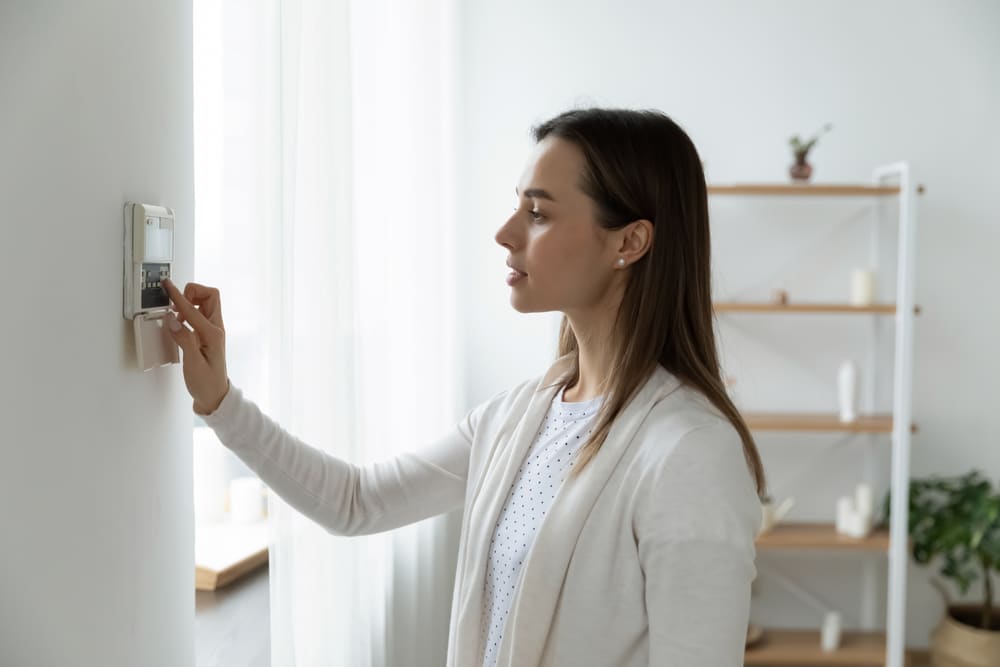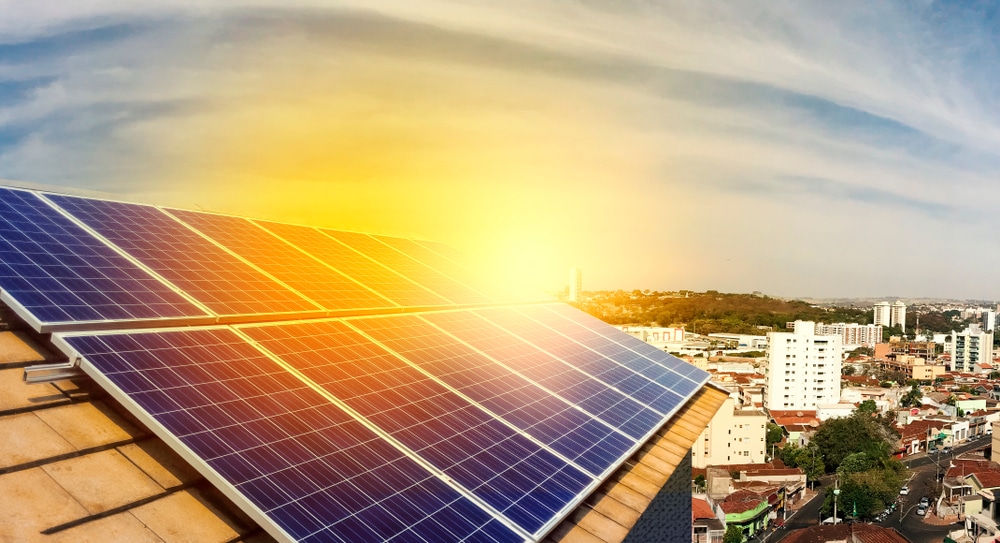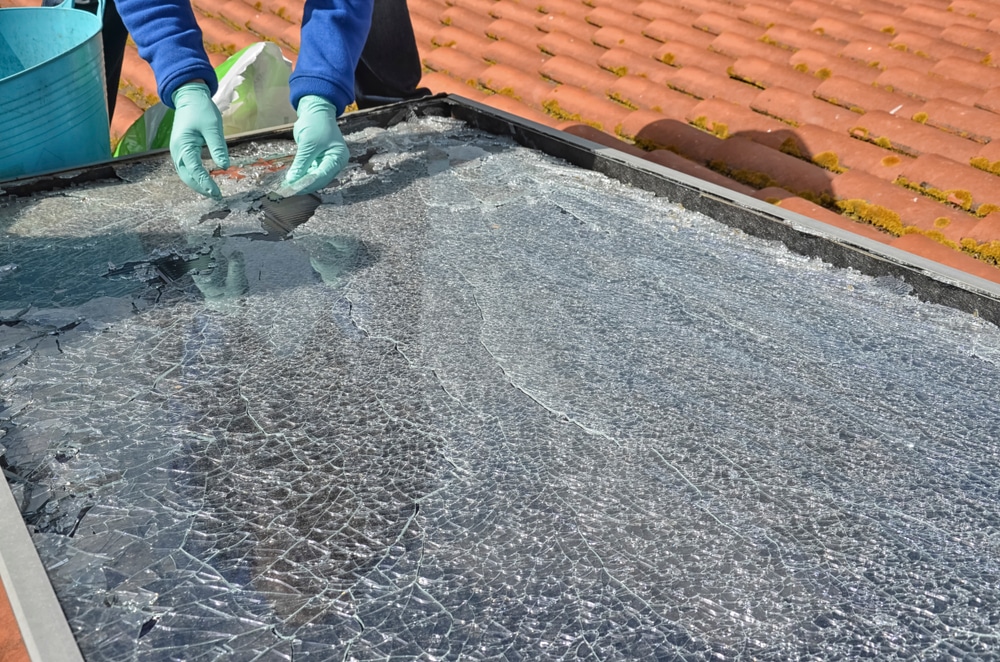Jasmine Birtles
Your money-making expert. Financial journalist, TV and radio personality.

Can solar panels save you money?
It is no secret that this winter will be a tough one. Even with the new Prime Minister, Liz Truss, announcing a government-imposed energy price cap of £2,500 annually from October 1st, millions of people will still struggle to pay their bills.
This got us thinking about alternative energy and ways to power your home. According to a 2020 report from the government, there are approximately 970,000 homes in the UK with solar panel installations. The Eco Experts concluded that this is just 3.3% of homes in the UK.
However, the demand for solar panels has increased in the last decade. As of 2020, there are almost 500 solar farms operating. The cost of solar panels has also decreased by a whopping 82% in the last decade, not only due to increased demand but improvements to their design and advancing technology.
With 62% of people in the United Kingdom suggesting they would like the government to focus on greener and sustainable energy, it is no surprise that solar panels can actually add value to your home. In fact, they could add around 4.1% to the value of your property.
So, with this in mind, how much do solar panels cost, and how much money could they save you on your energy bills?

According to energy supplier EDF Energy, homes with one or two bedrooms use an average of 2,000 kilowatt hours (kWh) annually. This increases to 3,100 kWh for homes with three bedrooms. For larger homes with four or more bedrooms, this figure rises to an average annual electricity use of 4,600 kWh.
A kilowatt hour (kWh) is a measure of how much energy you are using. It does not mean how many hours of electricity you use. Despite the name, it also doesn’t mean the number of kilowatts you are using per hour.
To put it simply, 1 kWh is the energy you would use if you kept a 1,000 watt appliance running for one hour. 1 kWh can vary greatly between appliances. Of course, all appliances are difference and run on a difference number of watts.
According to OVO Energy, running an electric shower (10,000 watts) for six minutes would use 1 kWh of energy. Keeping a broadband router, which uses between seven and ten watts of energy on for five days would also use 1 kWh of energy. Every appliance or device can vary.
Of course, the price of a kWh also changes as energy price caps change. We have seen many changes to our price caps over the last year, and they are to change again on October 1st.
During the last price cap period, which is the six months between April 1st 2022 and September 30th 2022, 1 kWh cost £0.28, according to Ofgem. From October 1st, when the new price cap period comes into force, 1 kWh will cost £0.52.
This is just an estimate, however, and can vary between region and supplier. From October, the government’s help of £400 towards energy bills, as well as the announcement that they will cap energy costs at £2,500 annually, may also impact the amount you pay.
The cost of solar panels depends on where you live and the size of your home. A small solar panel system could cost anywhere from £4,000 to £6,000. They can generate 2,600 kWh of energy per year. With the amount of money you could save on energy as the result of using solar panels, they would likely take around seven years to pay themselves off.
Medium system sized solar panels could cost £6,000 to £8,000. They can generate 3,500 kWh of energy annually, and would take anywhere from six to 15 years to pay themselves back.
Solar panel systems with a larger capacity can cost anywhere between £8,000 and £10,000. They can generate 5,200 kWh of energy annually, and would take any amount of time of six years to pay themselves off.
As with the cost of energy itself, solar panels differ in price depending on your location, the company you choose to install them, the size of the solar panels you would like, and more. The amount you can save using solar panels will also differ. Although 3,500 kWh per annum is an average for the amount of energy generated from solar panels, factors such as your geographical location, roof pitch, and orientation can also impact this.
Any obstructions to the roof space, which may block light reaching the solar panels or shading the panels will also impact the amount of energy generated, and is worth thinking about before installation.
Similarly, payback times can differ due to tough conditions in the energy market and a high cost of living in the UK currently.

Did you know you could actually make money from your solar panels, too? Yes, you could actually end up paying off your solar panels quicker than you thought.
Surplus electricity generated from your solar panels can be sold to the National Grid. The Smart Export Guarantee (SEG) scheme was launched in 2020 and is a government-backed initiative. This scheme means energy suppliers with over 150,000 customers must offer tariffs to households in England, Wales and Scotland which pay a set rate for any unused energy you generate from your solar panels.
This tariff will pay you a set rate for every kWh of electricity you generate and do not use. The amount you get back does depend on your supplier. Prices range from 1.5 pence to 12 pence per kWh of electricity sold back. Make sure you go for the best-paying tariff if you can. Crucially, this does not have to be the same company who supply your energy.
According to the Energy Saving Trust, a typical household based in the middle of the country could make £80 to £110 annually. However, this will vary depending on where you live, the supplier you are with and of course, the amount of energy you use yourself. The more surplus energy you have, the more you could get paid for it.
Although it is not a huge amount of money, every penny counts!
You need to make sure your home is suitable for solar panels. This is beneficial as you need to ensure they will be as efficient as possible, and they will be worth the money you pay to install them.
Most importantly, if you roof is shaded for any reason, it may not be practical for you to get solar panels. Perhaps you currently have a large tree blocking sunlight from reaching your roof for a majority of the day, or there is another building towering over your home. If your roof is unshaded during peak daylight hours, you may be in just the right spot for solar panels.
You will also need a fair amount of room on your roof to install the solar panels. Solar panels can take up a lot of space, with the typical solar panel at around two square meters. To ensure you make maximum savings on your energy bills, it is important there is enough space to be worth installing panels.
Of course, to hold hefty solar panels, your roof must be in good, strong condition. If solar panels are something you are seriously considering, it is worth getting an independent inspection done. This will ensure there is no hidden damage to your roof. Any old tiles or cracks should be replaced and repaired.
Generally, you do not need planning permission to install solar panels. In England and Wales, panels are likely to be considered ‘permitted development’. This means you don’t need to apply for and obtain planning permission.
However, if your property is listed or is in a conservation area, you may need permission. Approval may be needed from your local council, so check with your local authority just in case. Similarly, if your property has a flat roof, you may need planning permission. It is always a good idea to ask if you are unsure, by contacting your local council.

Solar panels often come with warranties of 20 years or more. Double-check this will be the case before you get them installed to ensure you are covered.
Unexpected things can happen, too, which could damage your solar panels. Although they tend to be very sturdy, a bad storm could cause a small amount of damage. In such cases, you may be covered by your home’s building insurance. However, make sure you check with your insurer before having solar panels installed.

Electrical equipment outside on the roof, no thank you.
Hi Joanne, I work over at https://www.solarboss.co.uk/ please rest assured there is no cause for concern!